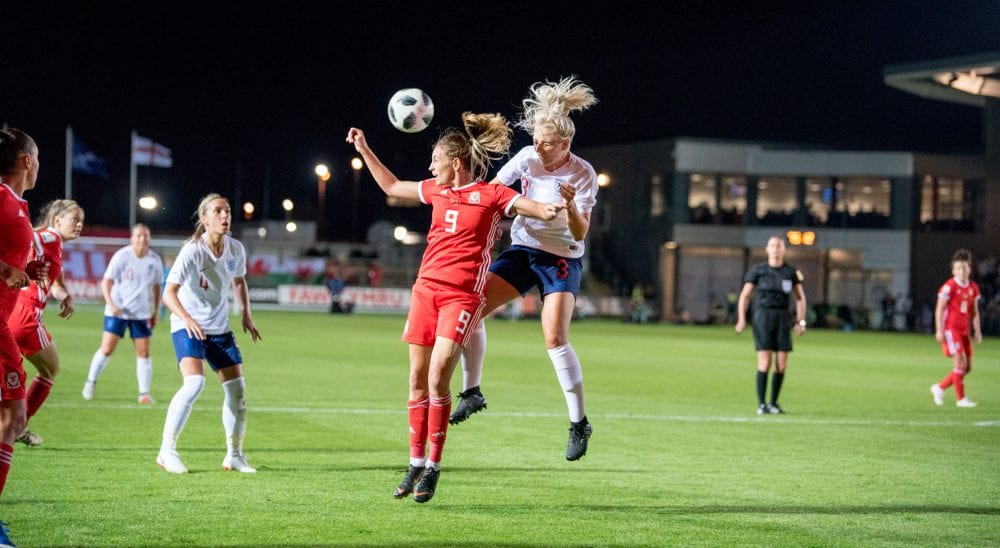How technology and gamification can help boost women’s football

Steve Madincea, Managing Partner at Fantastec, reveals the ways technology is able to boost the reputation and awareness of women’s football post-pandemic.
Pre-pandemic, women’s football was enjoying a meteoric rise that only the likes of Esports and Formula E have witnessed during the same period. It was on the back of the very popular 2019 FIFA Women’s World Cup in France that we started to see increasing TV viewership figures, record attendances being set in multiple countries, and an influx of much-needed sponsorship support.
However, the ongoing pandemic is threatening to push women’s football back 20 years. The ecosystem the women’s game stands within has yet to fully mature. Some clubs still operate their women’s team out of their charity or community divisions. Meanwhile, the game struggles with poorer facilities and lower wages. The sport’s huge reliance on sponsorship for income will also take a hard knock as businesses’ profits suffer due to Covid-19.
The recent Digital, Culture, Media and Sport Committee report called on football to use its response to Covid-19 to ‘reset’ an unsustainable culture. Clubs must embrace innovation in their approach to generating revenue for the women’s game and growing their fanbases.
Engaging the women’s football fanbase
Women’s football must invest in new ways to build connections – and this can be approached by leveraging new technologies. Blockchain’s decentralised model can enable smaller clubs to efficiently connect with their audiences using scalable networks with built-in payment methods. This provides a cost-effective and direct way of engaging with international fans. Blockchain technology empowers fans, enhancing trust by building safe, digital environments to unite communities.
Blockchain can help brands bypass intermediation and forge stronger direct relationships. Advertising campaigns can be expanded and customer targeting can be improved and enhanced, while data remains direct to the team and secure. Brands can incentivise customers to disclose and share information through loyalty rewards. Collectibles, fan experiences, and cash-back incentives can all strengthen the relationship between the club and the fan.
By using the power of blockchain, loyalty programs can be fully integrated and exploit interactivity. At the same time, clubs can gain increased visibility over members’ profiles, points, purchase patterns, payment history and promotion responses to create more customised experiences for fans.
Changing the way fans use digital club content
Fantastec SWAP is an example of how blockchain technology can be used to change the way fans engage with club-produced digital content. Each collectible is a unique, irrefutable, non-refundable record of a digital asset, where blockchain can prove its legitimacy and scarcity. Its value can also be protected. Other content for fans can also be secured, such as digital autographs which are filmed and thereby validated in a way a scribble on a scrap of paper cannot be.
Fantastec has built an ecosystem of reciprocal value founded upon trust, privacy and security. In the future, fans will be able to buy match tickets, download content or get discounted club merchandise. This allows clubs to engage deeper with fans, reward loyalty and understand more about exactly what their fan base want.
The app is seeing unprecedented interest from women’s football fans; at the start of the 2019/20 season, Fantastec launched multiple digital collections for the Arsenal Women’s squad alongside the Arsenal Men’s, Borussia Dortmund, and Real Madrid. Global consumers then started collecting Arsenal Women’s digital collectibles in 100 countries faster than any of the men’s teams, showing that fans of the women’s game are hungry for more interaction and engagement.
Though only 13 per cent of users of the Fantastec SWAP app identify a women’s team or player as their favourite, this group purchases around 30 per cent of all the digital collectibles on the platform. Clearly, women’s football supporters are active fans and therefore a highly desirable demographic for brands to reach.
Fantastec also found that consumers in Asia and North America were particularly attracted to signature ‘Hero’ cards, which use the blockchain to provide genuine and authenticated player autographs. With prices skyrocketing and so many fake autographs in the marketplace, time-shifted consumers are finding blockchain-verified autographs offer exclusive content they cannot access elsewhere- a trend likely only to be further accelerated by the ongoing pandemic.
Looking ahead
The pandemic poses a real threat to women’s football. As such, brands and clubs must re-evaluate how they can assist with promoting women’s football and recapture the positive momentum built after the 2019 Women’s World Cup. Leveraging new technologies can help clubs connect with increasingly geographically disparate audiences and engage remotely. As fan behaviour evolves in response to shifting environments and emerging innovations, clubs must stay one step ahead to craft the committed fanbase they need to build sustainable growth.
